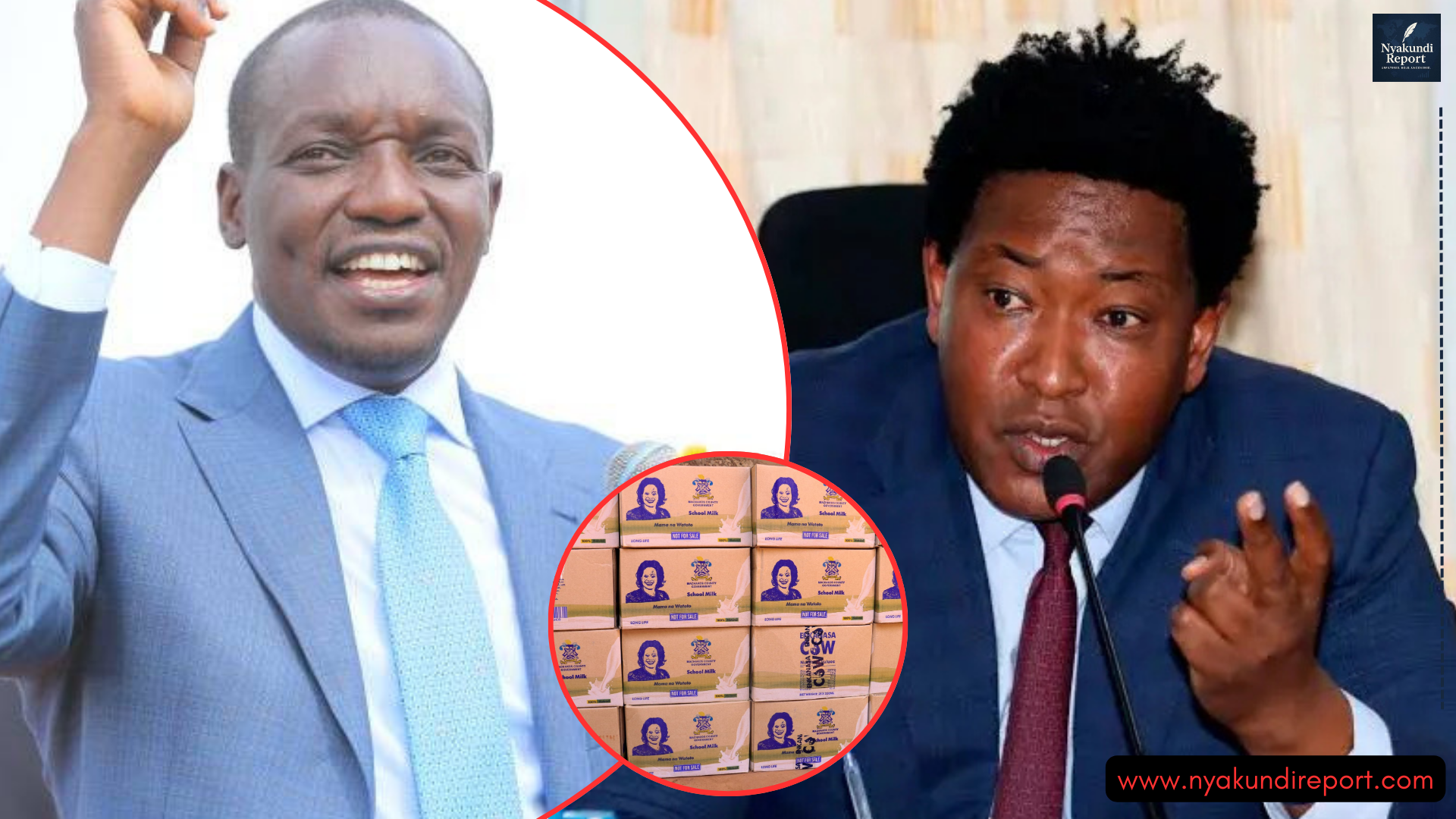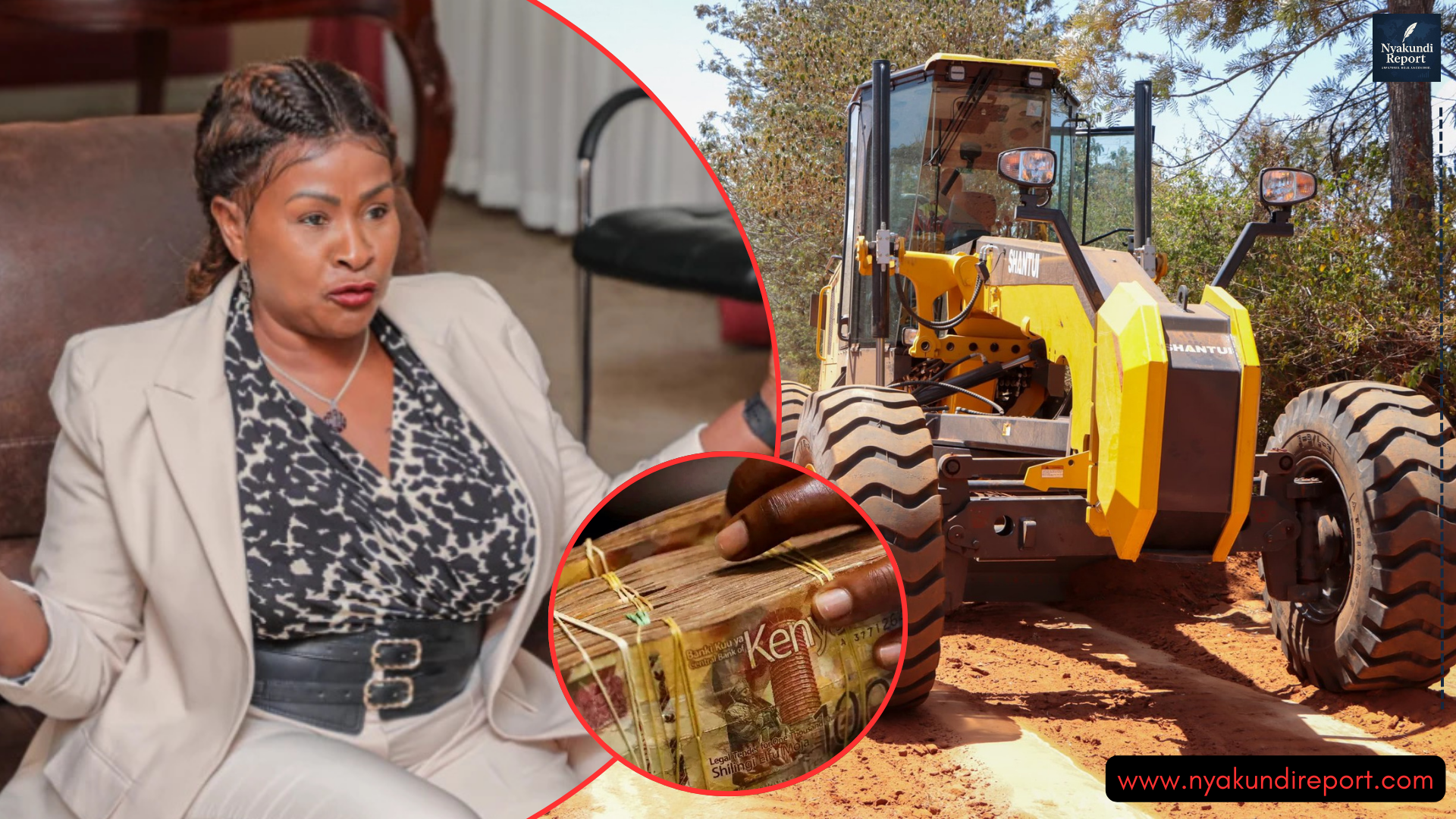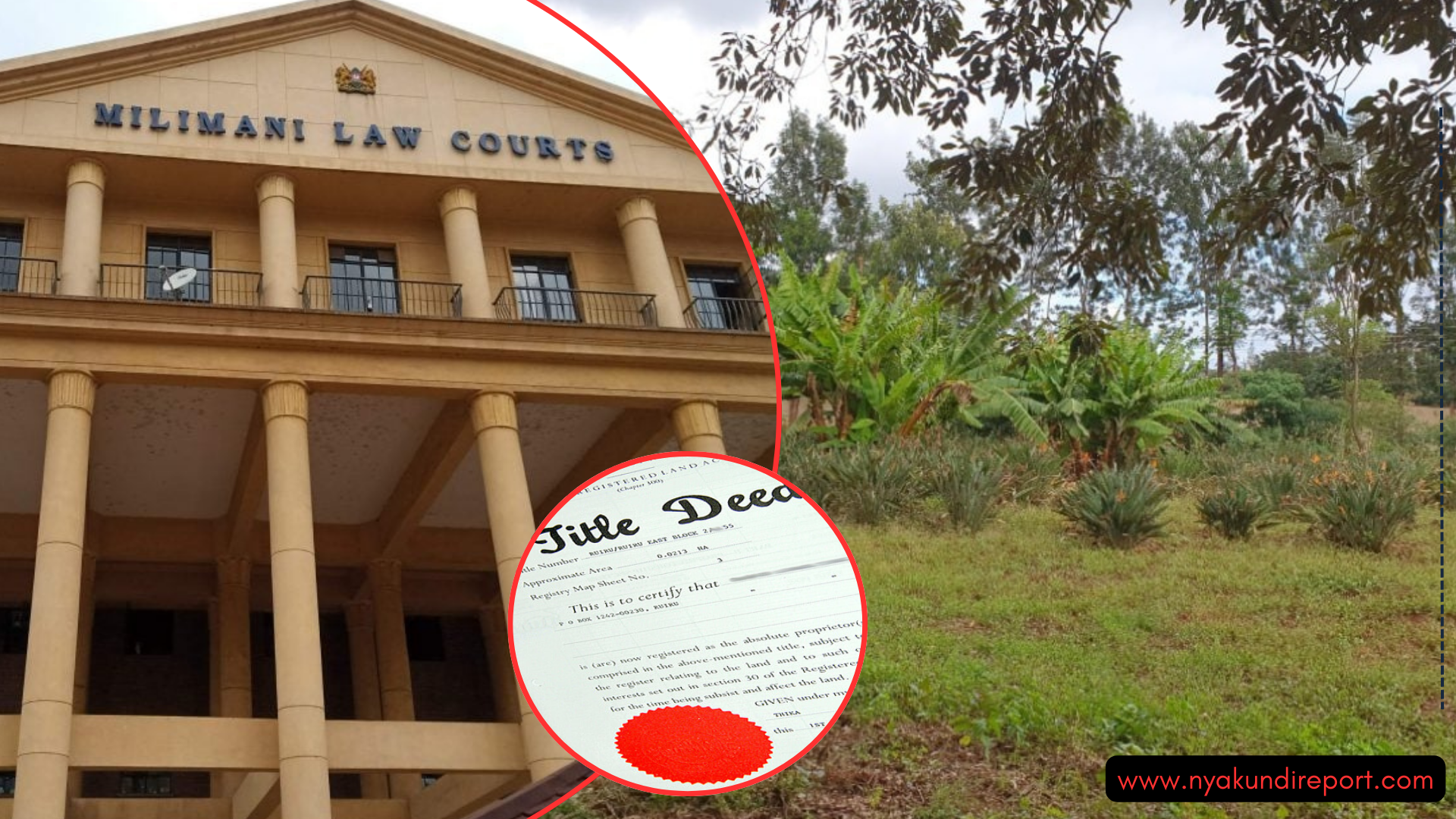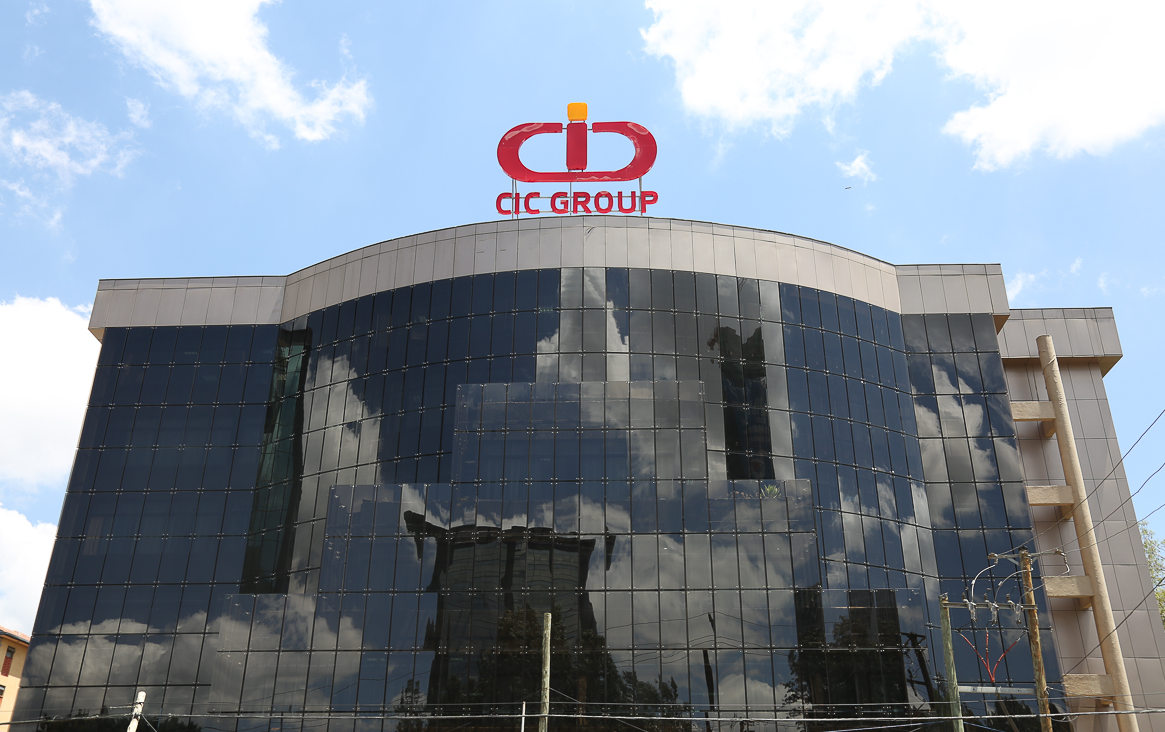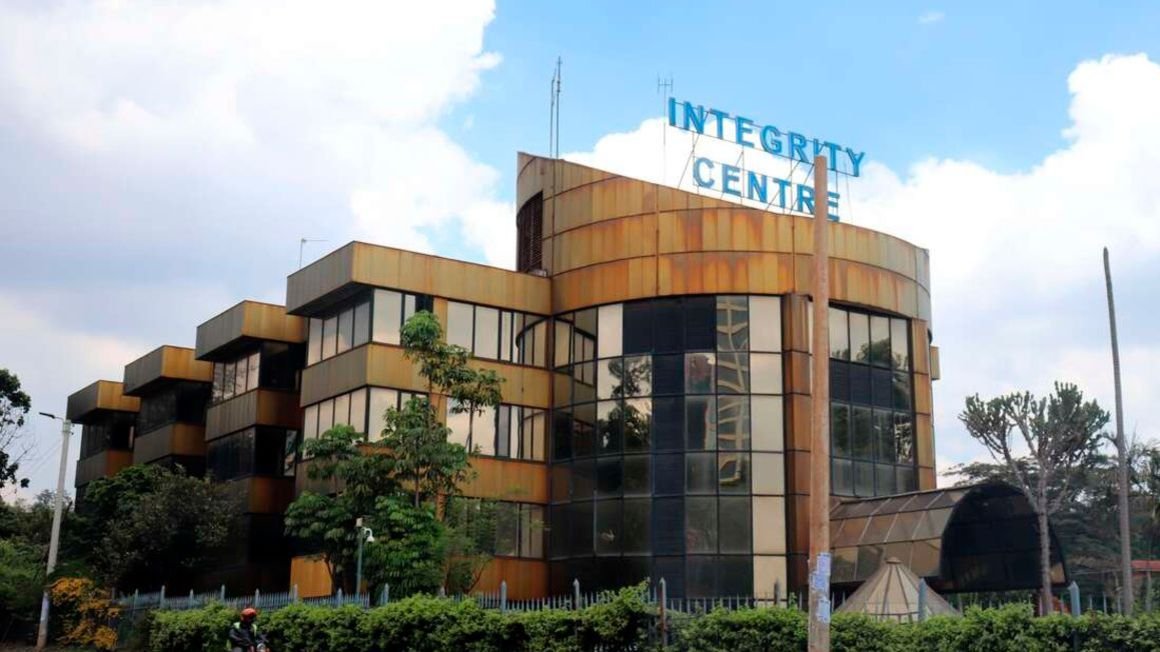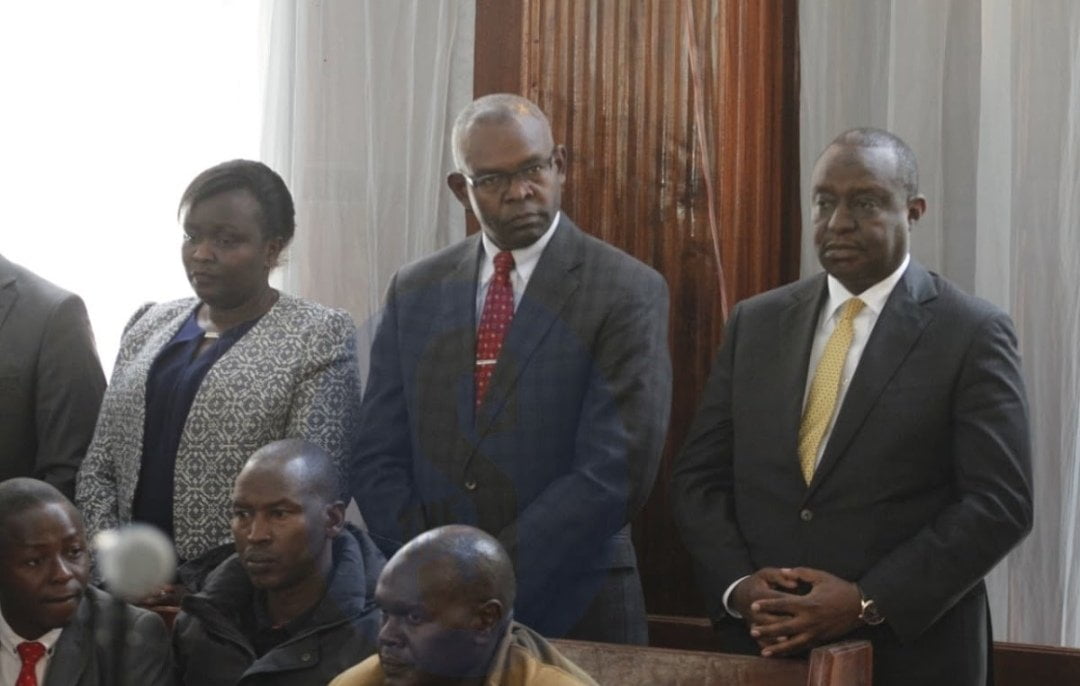In a bombshell that’s shaking Kenya’s political core, former Deputy President Rigathi Gachagua has come out swinging—accusing President William Ruto of being the hidden hand behind a controversial luxury hotel being constructed deep in Ngong Forest.
Gachagua’s revelations, made during a fiery speech in Murang’a on Sunday, link Ruto to a five-acre eco-camp project that’s already under fire from environmental activists and the public alike.
With accusations of land grabbing, political deceit, and misuse of state power, this unfolding scandal exposes a troubling web of personal gain at the expense of Kenya’s fragile environment.

Gachagua Points Finger at Ruto Over Ngong Forest Hotel
Gachagua didn’t mince words. Standing at a church altar, he declared that President Ruto is the man behind the posh hotel creeping into the Ngong Road Forest Sanctuary. He said the hotel is not just any development—but a strategic cash cow designed to benefit from the soon-to-be-completed Talanta Hela Stadium, which sits nearby.
“The president wants to grab five acres of Ngong Forest to build a hotel to serve the stadium,” Gachagua declared, connecting the dots between stadium construction and forest encroachment.
In a move that raises more eyebrows, Gachagua claimed that the same contractor building the stadium is also behind the hotel. This single connection suggests a carefully orchestrated operation—backed by powerful political players and possibly state resources. It also deepens fears that this isn’t just a rogue project, but a systemic abuse of public land.
Gachagua revealed that his previous criticism forced President Ruto to halt the project through Kenya Forest Service (KFS), which issued a suspension notice. But he warned that the president must not resume construction.
“Mr. President, don’t go back to that forest. We will expose you again. Even people in your government are tired and giving me reports,” he warned, suggesting internal dissent within Ruto’s administration.
The claims come as civil society groups, environmentalists, and ordinary citizens voice outrage over the hotel’s presence in one of Nairobi’s last remaining natural forests.
Environmental Concerns and KFS Response Raise More Questions
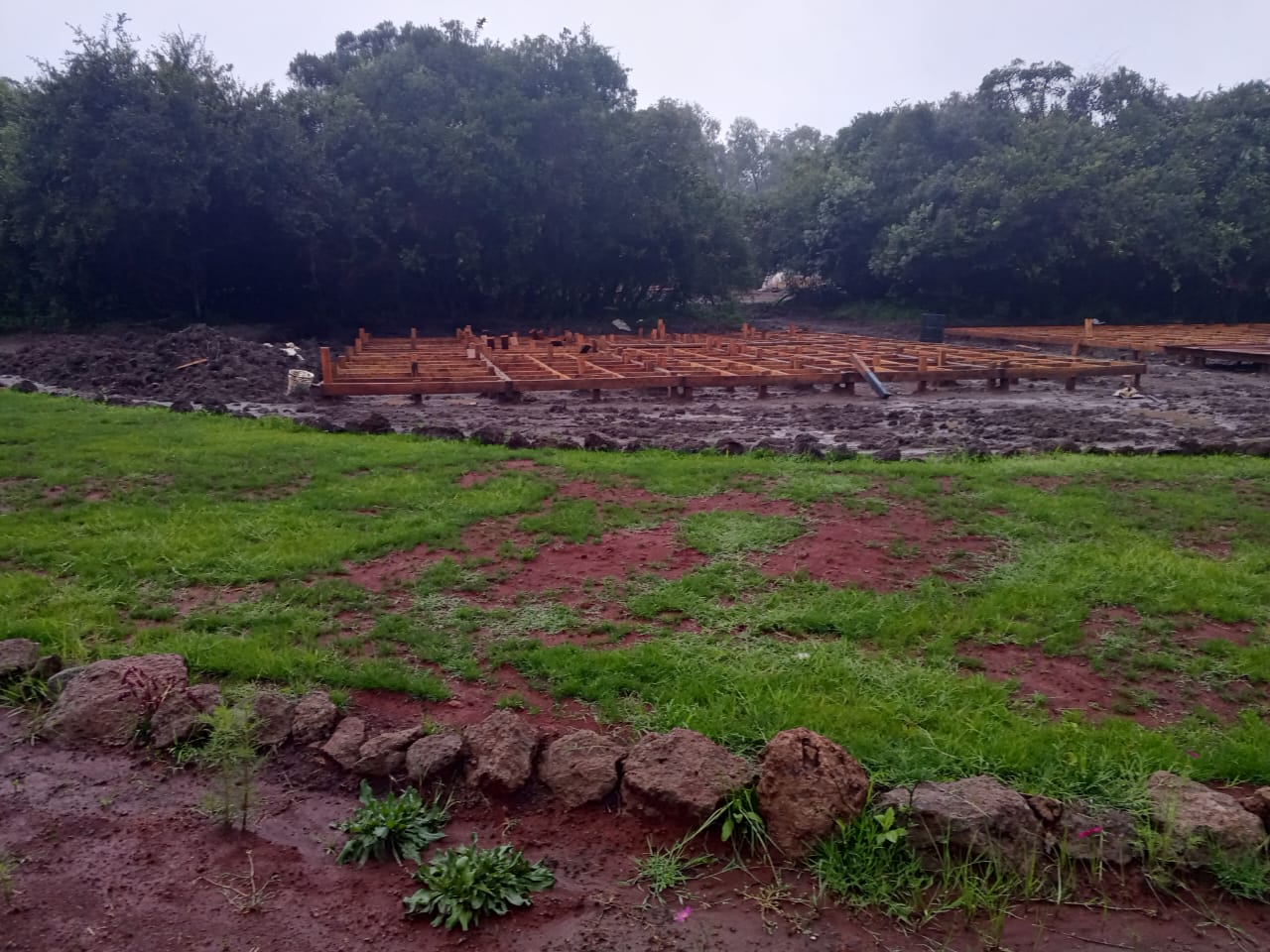
Kenyans are furious. Ngong Forest isn’t just another green space—it’s a protected urban forest, critical for biodiversity, carbon capture, and water catchment. So when news broke that five acres had been allocated to build a “bush eco-camp,” outrage exploded on social media and in civil society.
The Green Belt Movement, founded by the late Nobel laureate Wangari Maathai, has been vocal. They want answers. How did a hotel project find its way into a protected forest? Who approved it? What legal processes were followed?
In response, KFS released a statement defending the eco-camp. They claimed the land in question is a glade—a naturally open area without trees—and said the project had undergone environmental assessments with no major negative impact identified.
“The project to develop a bush eco–camp was approved procedurally,” KFS stated.
But that explanation has done little to calm the storm. Critics argue that even a glade is part of the forest ecosystem and that building infrastructure there sets a dangerous precedent for future encroachment. Moreover, questions about transparency, public participation, and the true purpose of the project remain unanswered.
Under growing pressure, KFS suspended the project pending further consultations. However, the damage is done. Many now believe the project was greenlit not for tourism or conservation—but for profit and political privilege.
Political Fallout and Public Distrust in the Ruto Administration
Gachagua’s bombshell isn’t just about a hotel—it’s a symbol of a larger narrative: the betrayal of public trust. For many Kenyans, President Ruto came into power promising bottom-up economic reforms and environmental protection. But if Gachagua’s claims are true, then the president is exploiting the very systems he vowed to fix.
This scandal threatens to unravel the facade of a clean, people-first administration. It also exposes growing fractures within Ruto’s political camp. Gachagua’s open criticism and reference to “people in government” leaking information suggests deep-seated discontent.
Analysts warn that if the Ngong Forest Hotel project resumes—or is quietly rebranded and pushed through again—it could mark a serious blow to Ruto’s credibility. Already, opposition leaders and environmental watchdogs are calling for a full investigation and for the president to publicly address the accusations.



